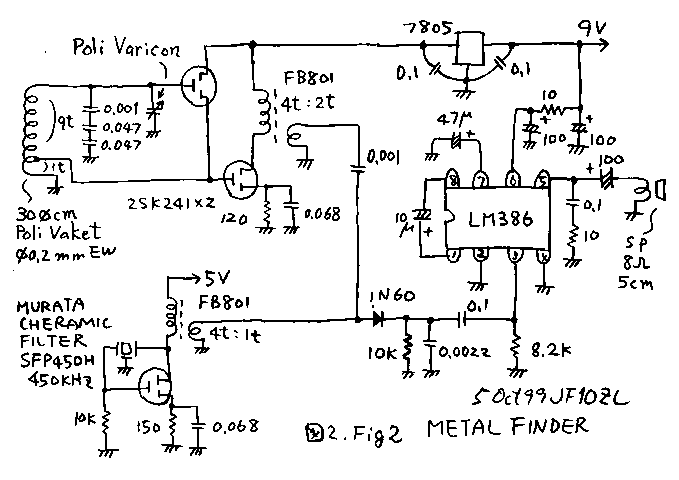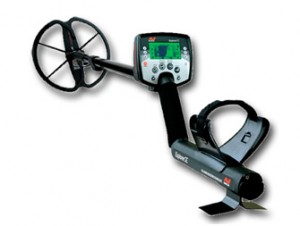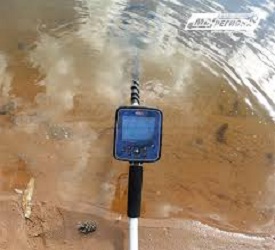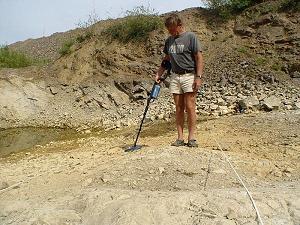How smoke detectors work by ionization In the category smoke detectors more articles and learn more information about How smoke detectors work by ionization Reviews Price Specifications Features Image manuals videos Accessories All this in metal detectors for gold.
Ionization smoke detection systems perceive variations in the stream of ions in the air, this variation is registered in the Chamber of the detector, and when there is a fire this sounds an alarm, due to ions that are condensed in the ionization chamber, make that reduce electrical power to the detector. When smoke enters the ionization chamber the particles released they interfere with ionization which takes place in the Chamber of the detector, causing disruption of power and this makes it sound an alarm. The operation of this type of detector is based on the decrease in the conductivity of the air.
laboratories, chemical industry, shops of painting, or industries where used alcohols, solvents and materials of rapid combustion, since this ion detection system is more sensitive to the presence of fire’s rapid growth and no visible smoke.

Types of smoke detectors
A smoke detector is one of the four types of fire detectors, and the most common residential method. It is important to determine what kind of fire detection system would be most beneficial for your home, business, building or industrial building.
Fire detection systems are invaluable in residential and industrial fire safety. Almost 50% of residential fire-related deaths occur in a structure without any smoke detector, according to a study by the National Fire Protection Association.
Types of smoke detectors
Smoke detectors operate with one of two methods. Photoelectric smoke detectors feel it in the Chamber by means of a beam of light that shines through in a sensitive photocell to the light. Photoelectric detectors work best in the detection of latent fire.
Ionization smoke detectors ionize air molecules into the camera. Electric current flows between two plates inside the Chamber. Once the products of combustion, or smoke, enter the camera, connected to ions and cause the interruption of power. Ionizing detectors work best to flaming fires. Use both detectors in conjunction or buy a newer combination of detectors that combine the two technologies.
Flame detectors
Flame detectors, also known as detectors of light, come in one of three types: ultraviolet light detectors, detectors of infra-red light or combined detectors.
These detectors, true to its name, detected high levels of light that may indicate a fire. Due to its potential sensitivity to sunlight or activities such as welding, Flame detectors only must be in closed places or those not exposed often to the kind of light that detect.

Heat detectors
Both fixed temperature detectors and rate of heat increase detectors detect excessive heat about what it should be, often an indicator of reliable fire. Set temperature detectors feel the heat over a specifically set temperature. They are inexpensive, but if the room temperature is low, it may take some time detect the high heat of a fire.
Alternatively, the rate of heat increase detectors feel when in a room temperature rises more than one quantity determined degree within a specified period of time. They are reliable, but the location right next to an exterior door can cause false triggers due to temperature changes.
Gas fire detectors
Gas fire detectors feel the presence of gases commonly produced by the fire. Although the gases produced depend on the fuel of the fire, they may include carbon dioxide, carbon monoxide, hydrogen cyanide, hydrogen sulfide and hydrogen fluoride.
General gas fire detectors monitor only the carbon monoxide and carbon dioxide levels, but variations can be adjusted to detect these chemicals likely to ignite fires in specific environments. Many fires of gas detectors are not used in comparison with other fire detectors.
Related Articles
- how to Choose home automation system
- what to look for in minelab metal detectors
- American writer reveals the myths associated with the life of Cleopatra, the last Queen of Egypt
- magnetometer magnex
- what is georadar
- GOLDEN SENSE metal detector
- Wireless sensor exit aisle puck
- metal detectors operating principles
- Metal Detector whites coinmaster pro reviews
- Video review of metal detector Whites Coin Master Pro













